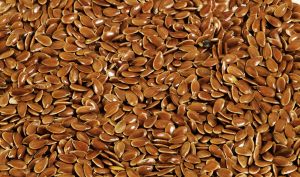Soy is one of those "wonder foods" that used to be sold only in health food stores or Asian markets in western countries.

In the last several years, soy has been showing up regularly on the shelves of mainstream grocery stores, packaged in an amazing variety of products and flavors. At the same time, a controversy has been brewing – is soy healthy or risky for breast cancer patients and survivors? Do soy foods protect you from cancer, or do they hasten its development?
Soybeans are a great source of the anticancer compounds known as isoflavones. These isoflavones have powerful antioxidant properties, and may be able to prevent cell damage (oxidation) caused by free radicals.
Soy isoflavones can act like weak estrogens, and may block estrogen receptors, similar to the way that tamoxifen works to prevent a recurrence of estrogen-sensitive breast cancer.
Sounds great, doesn't it? But there may be a problem of "too much of a good thing." Just as an excess of natural estrogen may fuel the growth of a breast tumor, too much of the soy isoflavone genistein, in concentrated form in many over-the-counter nutritional supplements, may set the stage for tumor development.
While moderate consumption of soy-based products is very reasonable, some supplements extremely high in phytoestrogens, especially soy-based isoflavone compounds and flaxseed based lignans, have been promoted as "natural" treatments for hot flashes and other menopausal symptoms. Very well-designed clinical trials show these supplements are no more effective than placebo (sugar pills) at relieving these symptoms. There is good science to suggest these high dose supplements may have negative health effects.
The Bottom Line on Soy and Breast Cancer
You may get the most benefits from consuming soy isoflavones such as genistein, if the isoflavones come from food (sesame seeds, tofu, legumes)– not from nutritional supplements.
The American Cancer Society says that concentrated extracts of soy isoflavones may encourage tumor growth, and should be avoided. Women in the Japanese study who had the lowest rates of breast cancer had consumed soy from childhood, or at least from pre-puberty. Post-menopausal women should not overdo soy products, because the powerful isoflavones mimic natural estrogen, which fuels 80% of all cases of breast cancer.
References
- Barnes, S., et al. "Soy Isoflavonoids and Cancer Prevention." Advances in Experimental Medicine & Biology 401. (1996): 87-100.
- Barnes, Stephen. "Anticancer Effects of Genistein." The Journal of Nutrition 125 (1995): 777S-783S.
- Bergan, R., et al. "Genistein-stimulated Adherence of Prostate Cancer Cells Is Associated with the Binding of Focal Adhesion Kinase to Beta-1-integrin." Clinical & Experimental Mestastasis 14(4) (1996 Sept.): 389-398.
- Messina, M. J., et al. "Soy Intake and Cancer Risk: A Review of the In Vitro and in Vivo Data." Nutrition & Cancer 21(2) (1994): 113-131.
 It decreases the inflammatory compounds that favor cancer development and suppress the immune system.
It decreases the inflammatory compounds that favor cancer development and suppress the immune system.
